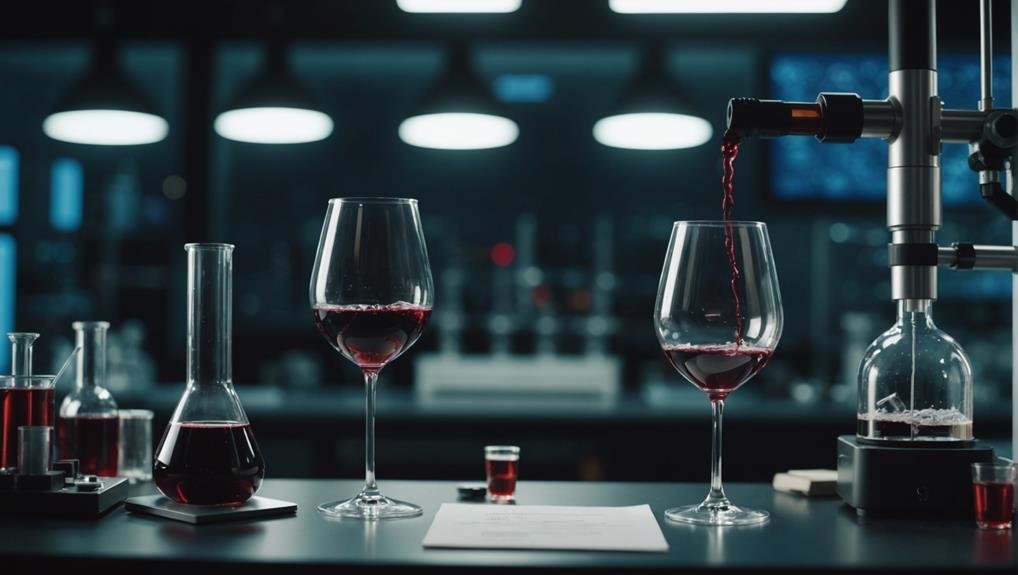Surprisingly, moderate red wine consumption might boost fertility. Studies show women who drink over five servings of red wine a month have a higher count of antral follicles, which are indicators of ovarian health. Key components like resveratrol and tannins in red wine seem to enhance reproductive health and blood flow to the ovaries.
Compared to other alcoholic beverages, red wine is much more effective in increasing antral follicle count, showing a 14 times better result. However, balancing the benefits with potential risks is essential, especially during pregnancy.
Future research will help us understand these promising findings better, giving us a clearer picture of red wine's role in fertility.
Red Wine and Fertility
When it comes to fertility, moderate red wine consumption might offer some benefits. Red wine contains antioxidants like resveratrol, which can help protect cells from damage and may support reproductive health.
While having a glass of red wine might sound appealing, it's important to consider both the benefits and risks, especially during pregnancy. Moderate consumption could have positive effects, but drinking too much can be harmful. It's crucial to maintain a balanced approach.
Study Findings on Antral Follicles
The study discovered that women who drank more than five servings of red wine per month had a higher antral follicle count compared to those who did not. Antral follicles are important because they indicate a woman's ovarian egg count and fertility potential.
This finding suggests that moderate red wine consumption could benefit ovarian health. Initially, researchers thought that alcohol might reduce ovarian egg counts, so this result was surprising. It appears that certain components in red wine, like resveratrol and condensed tannins, may help boost fertility.
While more research is needed, these findings offer new insights into how lifestyle choices impact reproductive health.
Comparing Alcohol Types

Among the various alcoholic beverages, red wine stands out for its potential positive impact on fertility. Studies show that moderate red wine consumption is linked to an increased antral follicle count, a key indicator of fertility potential.
Interestingly, red wine outperforms white wine, beer, and spirits in this regard. It shows 14 times better results in fertility tests compared to these other types of alcohol.
These findings suggest that not all alcoholic drinks affect fertility the same way. While moderate red wine consumption might offer unique benefits, other types of alcohol don't show the same potential. This distinction is important when considering alcohol's impact on fertility.
Potential Components in Red Wine
Let's take a closer look at some key components in red wine that might support fertility. First, there's resveratrol. This powerful antioxidant, found in grape skins, is known for its anti-inflammatory properties. It has the potential to enhance ovarian function and may protect eggs from age-related decline.
Another important element is tannins, which give red wine its dry, astringent taste. Tannins can improve cardiovascular health, which helps ensure better blood flow to the ovaries, indirectly supporting reproductive health.
While these components show promise, their exact roles in boosting fertility are still under research. Understanding these elements more deeply could open new ways to support fertility naturally through diet.
Importance of Further Research

Why is more research crucial to understanding red wine's impact on fertility?
We need future studies to confirm and expand on these intriguing findings. Early results suggest red wine might help with fertility, but the link isn't strong enough yet. Further research can pinpoint which components, like resveratrol and condensed tannins, play a role in these benefits.
By conducting more studies, we can figure out the conditions under which red wine might positively affect fertility. Controlled settings and diverse sources will ensure our conclusions are reliable and comprehensive.
Ongoing research is essential for giving clear advice to those who want to include red wine in a healthy lifestyle.
Conclusion
In summary, moderate red wine consumption might positively impact fertility. Red wine performed 14 times better than other alcoholic drinks in fertility tests. This result highlights the potential benefits of components like resveratrol and condensed tannins.
While this connection isn't yet considered significant, it does warrant further research. So, next time you're thinking about having a drink, a glass of red wine could be a good choice for your fertility.